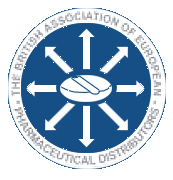Our History
The PPDI can trace its history back to the 1970's when a number of entrepreneurial pharmacists ascertained that drug prices varied significantly between member states of the (then) EEC. They established small wholesale businesses from their dispensaries, supplying other pharmacies within the local area.
The DHSS became concerned that without rules, regulations or even guidelines there was a possibility that counterfeit or low-quality products might find their way onto the British market.
It was under Dutch jurisdiction, where the trade was also established in the Netherlands, that the first legal cases such as de Peijper (determined in 1975) went to the ECJ to settle issues questioning the apparent conflict between intellectual property (IP) ownership and free movement of goods.
The UK importers worked closely with the DHSS to produce and develop rules and regulations governing the trade, thereby ensuring the maintenance of public health standards and guaranteeing that the imported form of any pharmaceuticals was the same as the domestic version. Many of the procedures agreed in the late 1970's/early 1980's were the consequence of a non-binding Communication issued by the Commission in 1982 on parallel imports of proprietary medicinal products for which marketing authorisations had already been granted. This Communication ([1982] OJ no. L 115/5) which effectively codified the principles of the de Peijper case, outlined the obligations upon parallel importers, including the particulars to be submitted to the national competent authority and obligations in respect of batch control.
The early 1980's: delivering Quality Control
The Licensing, Inspection and Monitoring System is operated and enforced by the Medicines and Healthcare Products Regulatory Agency (MHRA) on behalf of the UK's Department of Health. It may be summarised as follows:
- Only companies meeting the necessary standards as laid down by law are licensed to import and distribute prescription medicines.
- Before sourcing any pharmaceutical product, an approved importer must obtain a PL(PI) which is effectively an abbreviated marketing authorisation granted by the MHRA: such an authorisation is only issued once the competent regulatory authority is satisfied, through a process of due diligence, that the subject preparation is therapeutically identical to the domestic version. This PLPI is not required for products licensed through the EMA.
- Each product must be checked against predetermined and agreed quality standards as well as being subject to documentation establishing an audit trail.
- The Inspection & Enforcement Division of the MHRA undertakes regular visits to the premises of all the licensed companies within the PPDI to ensure compliance not only with the terms of each and every PL(PI) licence issued but also to undertake random checks on: quality assurance standards; the audit trail for specific products; and health and safety aspects. This ensures full compliance not only with the The Human Medicines Regulations 2012, but also with the various labelling, patient information leaflet and other regulations pertinent to the industry.
- The MHRA undertakes the monitoring of medicinal products once they have been placed upon the market, maintaining the necessary records which include the reports of side effects and, where appropriate, any subsequent action.
- The PPDI member must also comply with:
- pharmacovigilance and product recall obligations, where applicable
- obligations to monitor variations in and issues relating to the validity of product licences/marketing authorisations, informing the MHRA when necessary.
The Inspection & Enforcement Division's role is supported by the legal requirement under Article 22 of Directive 75/319/EEC, which requires that medicinal products moving from one member state into another must be accompanied by batch control documents, complying with the laws of the member state of manufacture, or for such controls to be completed by a qualified person ('QP') in the importing country.
(A QP means a person who has appropriate qualifications and experience of the pharmaceutical industry. The "qualified person" is independent and responsible to the national competent authority not to the product licence holder: all product licence holders must retain the services of at least one such qualified person.)
Further information can be obtained through a publication available from the MHRA, "Notes on Applications for Product Licences to cover the parallel importation from EU member states of medicinal products for human use".
